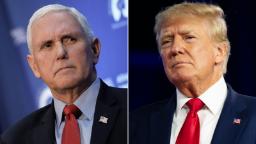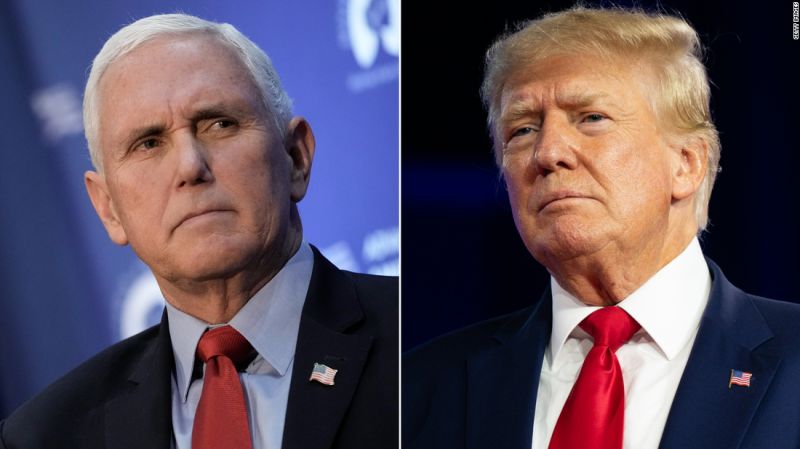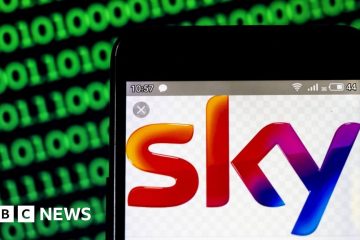
CNN
—
Former President Donald Trump has appealed a judge’s order that Mike Pence must testify to a federal grand jury investigating the aftermath of the 2020 election, according to a person familiar with the case, but is unlikely to stop his former vice president from speaking to the panel.
Trump has already lost several attempts in court to block other top officials from his administration from testifying, and the courts have resoundingly sided with grand jury pursuits for decades, making any attempt to claim executive privilege around his conversations with Pence a long shot.
Over the past year, the grand jury in Washington has secured testimony from Trump White House counsel Pat Cipollone and Patrick Philbin and Pence advisers Marc Short and Greg Jacob, following court decisions that Trump couldn’t stop them from answering. In recent days, a lower-court judge also ordered that several of Trump’s aides including then-White House chief of staff Mark Meadows must testify despite Trump’s attempts to assert privilege, and those former officials have either appeared again for testimony or are lined up to speak to the grand jury in the coming days.
The decisions have set up a quick resolution for Pence’s unprecedented testimony about the president he served alongside.
“Former President Trump was always destined to lose all of these executive privilege challenges,” Neil Eggleston, the former Obama White House counsel and one of the most experienced attorneys on presidential privilege issues in Washington, said this week.
The Pence appeal follows the three other emergency appeals in the January 6, 2021, criminal probe and one related to a congressional investigation where Trump tried to protect documents from his presidency by claiming executive privilege. He has lost all of those challenges, with recent three-judge panels on the DC Circuit Court of Appeals refusing to block witness testimony sometimes within hours after he’s asked for intervention.
Adding to Trump’s losing battle, Pence has said he would not appeal the judge’s order from late March and would comply with his subpoena. He could be called before the grand jury as early as this week.
Sealed filings in the DC Circuit related to Trump’s appeal came in on Monday and do not indicate Trump is seeking any emergency intervention at this time, though one of his lawyers was spotted at the courthouse on Monday.
Trump has continued to keep his legal challenges alive against the special counsel probe, even after he’s lost in initial rounds and the witnesses have broken the secrecy bubble by testifying. But those appeals too appear to be losing battles, given how the emergency panels of judges have decided and how the cases have played out recently and in past presidencies.
Even before investigation by special counsel Jack Smith pursued details of conversations between Trump and top administration officials, Trump lost a major court fight last year where he tried to hold off congressional investigators from obtaining his presidential records. “Under any of the tests advocated by former President Trump, the profound interests in disclosure … far exceed his generalized concerns for Executive Branch confidentiality,” the DC Circuit Court of Appeals found in January 2022 during the House select committee’s January 6 investigation. The same court – though different panels of three judges depending on the week – would handle all of the known Trump grand jury disputes and sits one rung lower than the Supreme Court. The court decisions on executive privilege related to the January 6 criminal probe are all still under seal, and the Supreme Court has not had to weigh in on any known January 6 grand jury challenge to date.
In recent years, courts have considered the demands of criminal investigations even more sacrosanct than congressional investigations – making it harder for presidents to block grand jury demands when they are under investigation. Trump’s ability to claim executive privilege after his presidency also hasn’t been settled by the courts, and President Joe Biden has repeatedly declined to assert executive privilege over Trump-era presidential exchanges when January 6 investigators have requested access.
On Sunday, James Trusty, one of Trump’s defense lawyers, criticized the approach of the Justice Department.
“They have literally put everybody in the grand jury you can imagine. They don’t respect any privilege that President Trump holds,” Trusty said on NBC’s “Meet the Press.”
The courts determined almost 50 years ago during the Nixon presidency that presidential privilege could fall away when the grand jury’s needs outweigh a presidential administration’s calls for secrecy, Eggleston said. A unanimous landmark Supreme Court decision in 1974 that defined the parameters of executive privilege delivered the audio recordings of then-President Richard Nixon to the Watergate grand jury.
“Anyone who pays a filing fee can file anything they want,” Eggleston added about Trump. “I would be very surprised the court of appeals or the Supreme Court would be remotely interested in this issue” because of how the courts decided during Watergate.
Separate from Trump’s executive privilege arguments, Pence had argued he should be covered by the Constitution’s Speech or Debate Clause, which shields lawmakers from certain law enforcement actions connected to their legislative duties and has been a thornier issue historically for the Justice Department to navigate in court.
Chief Judge James Boasberg of the DC District Court decided Pence must testify about conversations where Trump may have been acting corruptly, but Pence could still decline to answer some questions related to January 6, when he was serving as president of the Senate for the certification of the 2020 presidential election.
Pence claimed the court’s decision as a win, because the trial-level judge allowed for the vice presidency to be covered by the same protections as members of Congress related to Pence’s Senate duties. But the court’s decision appears to preempt very little testimony in the January 6 investigation that the special counsel’s office has sought.
This story has been updated with additional developments.
Note:- (Not all news on the site expresses the point of view of the site, but we transmit this news automatically and translate it through programmatic technology on the site and not from a human editor. The content is auto-generated from a syndicated feed.))



